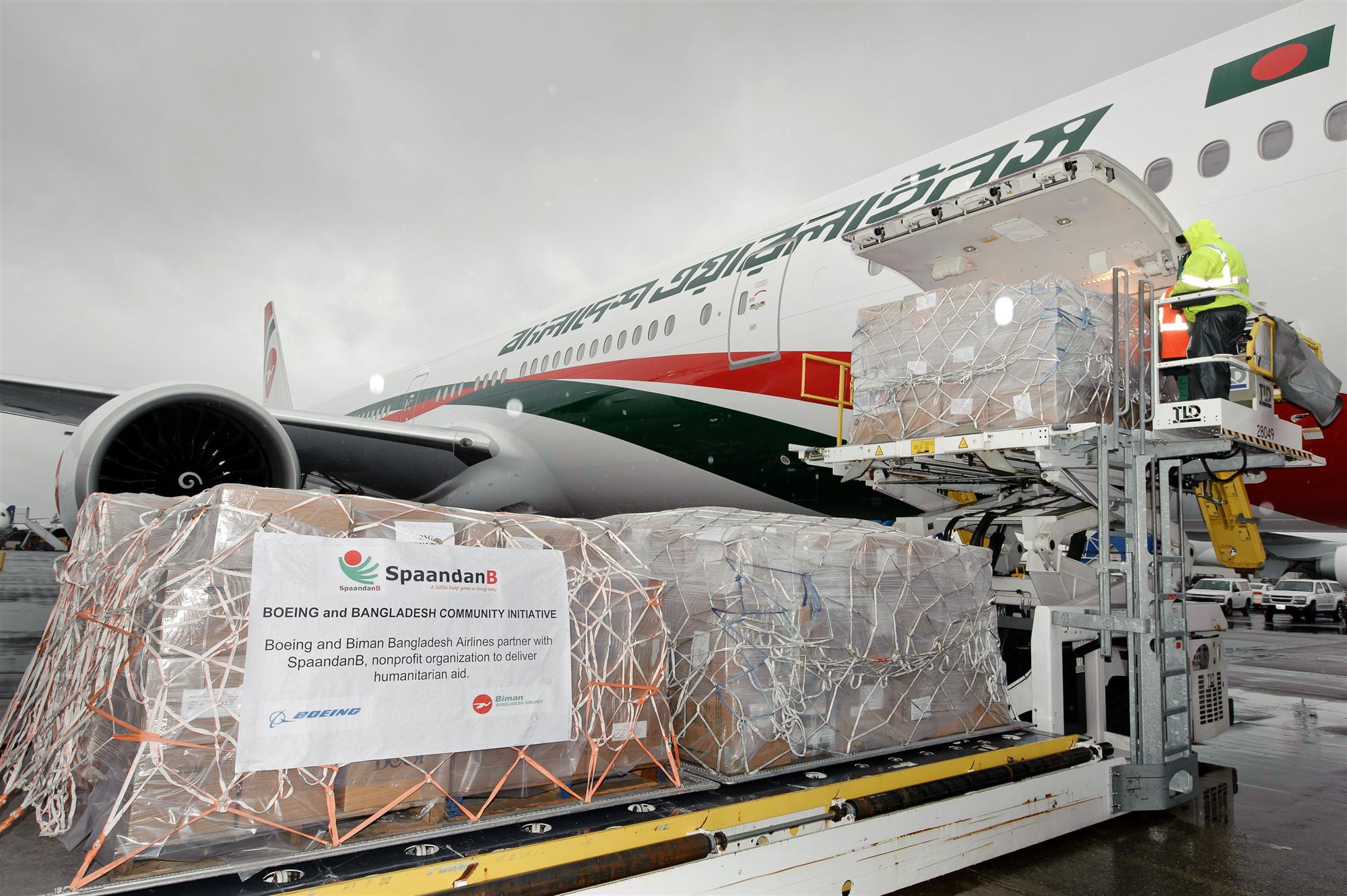Hopes are rising that a ban on direct cargo flights from Bangladesh could be lifted soon as the country moves to consolidate its booming garment export trade, industry sources have told Asia Cargo News.
Germany, Britain and Australia banned cargo imports from Bangladesh last year after concerns arose about safety. The ban required air cargo going from the South Asian country, which is logging its first decade of strong growth, to go via a third country.
The Civil Aviation Authority of Bangladesh (CAAB), which regulates the country’s airports, is near to completing the installation of dual view scanning machines, something its overseas counterparts wanted, Air Commodore M Mostafizur Rahman, member (operations & planning) of the Civil Aviation Authority of Bangladesh (CAAB), told Asia Cargo News in an interview.
“We have tightened security at the facility,” Rahman said, adding that a particular concern of the banning countries, the use of single view scanners, was also being addressed. “We will not keep any single views within the facility,” he added.
To support this initiative, the government has approved 2,000 new jobs at CAAB, a third of which will be in security, Rahman said, adding that there will also be more training for staff.

This has been met with some relief in the air cargo industry, which dislikes the inconvenience and expense of having to move cargo via a third country.
“They have done what I believe could be done,” AM Mosaddique Ahmed, managing director and CEO of Biman Bangladesh Airlines, told Asia Cargo News. “We have reached the situation where this can be resolved now,” he said.
While Bangladesh’s economy is rolling along at a good clip, such a move would help the air cargo industry, which has been impacted by the ban and a recent spate of bombings, one of which was close to the airport.
“There have been some issues over the past few days,” Mosaddique Ahmed acknowledged, while stressing the basic soundness of facilities in the country. “I think the airport has been adequately guarded.”
Also sound is the business model of freighter-free Biman, which is expecting a good year on top of several others. “It has been increasing steadily over the years both in terms of incoming and outgoing,” said Mosaddique Ahmed. Last year Biman moved some 40,991 metric tons of freight.
Outgoing, it’s nearly all garments. This is not so much because the rest of the logistics system can’t cope, but because of urgency and the need to get products to market and quickly. This also impacts Biman’s inbound cargo trade, which has largely been garment accessories such as raw cloth and buttons as well as telecoms and heavy machinery.
The carrier does not calculate cargo’s profit separately, but sees it as supporting the company’s solid bottom line. “We made profits for the last two years,” said Mosaddique Ahmed.
Likely to add to that are new destinations. Later this year the airlines hopes to open Colombo, Malé in the Maldives and Kunming, China.
Further down the line the hope is, if planes can be found, to bring open routes to New Delhi, Hong Kong and Tokyo, with Guangzhou also being on the list. This will plug a gap in the Biman flight plan which has only had one destination in India – Kolkata – and none in China, but has strength in the Middle East where the export cargo market is usually foodstuffs.
Helping out here will be solid new facilities the government is planning, including a major overhaul of Dhaka’s Hazrat Shahjalal International Airport which would see the construction of additional facilities to help cargo effectively double its daily capacity to 1,400 tons per day. The expansion is scheduled to complete by 2021 after a soft opening in 2019.
Nor does it stop there. CAAB is also thinking of developing a completely new airport in the vicinity of Dhaka, Rahman said, although the site is not yet decided. The plan is for four parallel runways.
Also in the brew – and very much for exports – is Khan Jahan Ali Airport at Khulna where there is already an export processing zone and the potential for perishables. The airport remains in the planning and consultancy stage, but consideration is being given to markets such as seafood and mangoes.
By Michael Mackey
Southeast Asia Correspondent | Dhaka



